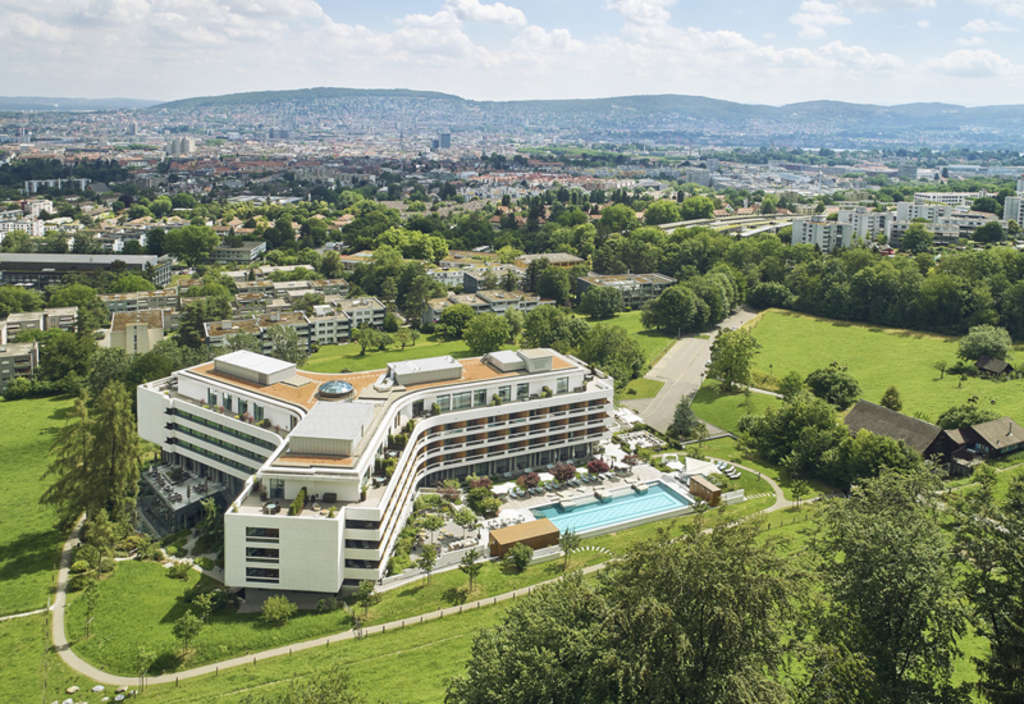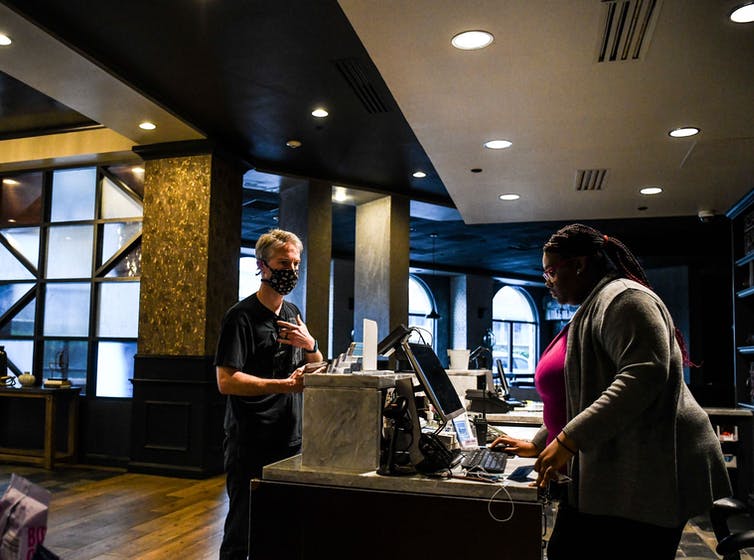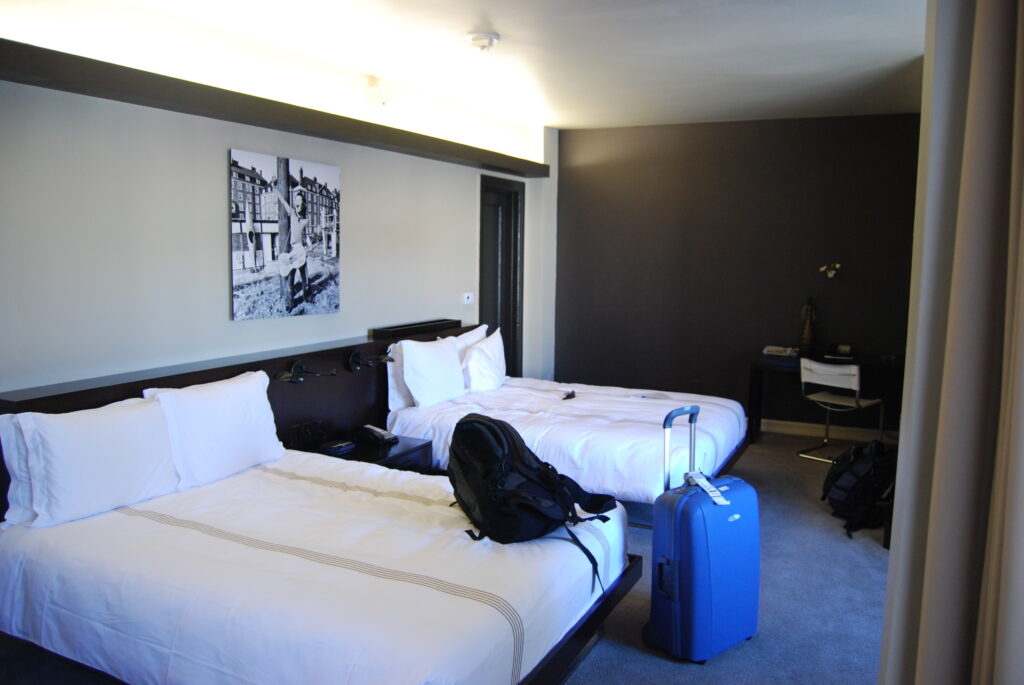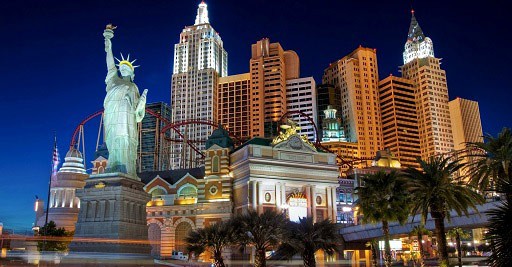 Uncategorized News
Uncategorized News
Expo 2020 kicks off thematic programming with virtual Space Week
A virtual event bringing together some of the brightest stars in space travel and exploration will probe the benefits, solutions and challenges of exploring beyond our planet as part of preparations for Expo 2020 in Dubai.
The event will include an appearance from Sarah Al Amiri, United Arab Emirates minister of state for advanced technology and science lead for the Emirates Mars Mission.
Open to the public and hosted by Expo 2020 today and tomorrow, during World Space Week, the virtual event will also feature James Green, chief scientist at the National Aeronautics and Space Administration (NASA).
It underlines a commitment to bring together the most ambitious minds, across ten thematic weeks, to address some of the greatest challenges facing the planet.
Reem Al Hashimy, director general of Expo 2020 Dubai Bureau, said: “Our theme weeks will draw on Expo 2020’s central role in bringing together the world’s brightest, most inquisitive and innovative minds from more than 190 participating nations, to participate in the sharing of knowledge, new ideas and innovations that will stand the test of time.
“Space, as a resource shared by all humanity, is one of these crucial topics.
“With the technological advancement of space travel and exploration making the dream of space tourism closer to a reality than ever before, managing it peacefully and equitably requires the concerted international cooperation of all space-faring nations.”
The event will highlight the latest innovations in space research and travel, while also providing a platform to discuss focus areas including space exploration, governance and law, space data and remote sensing, and the space landscape.
Source: https://www.breakingtravelnews.com/news/article/expo-2020-kicks-off-thematic-programming-with-virtual-space-week/
USD 810B worth of projects to help Saudi leisure tourism sector grow to new heights in the next 10 years
Massive investment in mega tourism projects to the tune of USD 810B is expected to transform Saudi Arabia to one of the largest leisure tourism industries in the world between now and 2030, according to research conducted by the Middle East and North Africa Leisure Attractions Council (MENALAC), the leisure and entertainment industry council representing the Middle East’s dynamic leisure attractions sector.

“Mega tourism projects being developed by the Public Investment Fund will be spread over an area of more than 64,634 square kilometers, with a value exceeding $810 billion,” according to Saudi Commission for Tourism and National Heritage (SCTH), the country’s tourism regulator.
Among these, the USD 500B Neom leads the list of the mega projects – which once completed, will deliver a futuristic mega sustainable city, followed by the USD 10B Qiddiyah Project, spread across 334 square kilometres in Riyadh.
The third project is Amaala, or the Saudi Riviera, located in the northern region with an area of 3,800 square kilometres, and developing islands in the Red Sea with a total area of 34,000 square kilometres.
Mishal Al Hokair, Board Member of MENALAC, said, “Saudi Arabia has an array of dynamic plans and attractions planned over the next few years, each of which will add to the fast growing Leisure and Entertainment sector. Its Vision 2030 will change the entire economic and tourism landscape of not only Saudi Arabia, but the entire Middle East region, which will have a massive positive knock-on effect on the leisure tourism industry.
“Once the current Covid-19 situation improves, the investment and development in the Saudi Arabia’s tourism sector will bring massive opportunities for the industry. It is time for everyone to prepare for the next big growth.”
In addition, SCTH will be developing museums in various Saudi regions, and preserving Saudi heritage with a cost of more than USD 1.3B.
“Saudi Arabia foresees that national tourism will significantly contribute to the gross domestic product as the most growing non-oil economic sector. The tourism revenues increased to more than USD 51B in 2017, and to more than USD 56B in 2018,” SCTH said in a report.
The total number of inbound and outbound tourist trips in Saudi Arabia is expected to reach 62 million trips, where tourism revenues are anticipated to exceed USD 37B by the end of 2020.
“Therefore, it is anticipated to rank as the 24th on the scale of tourist business environment, and 124th in the international openness of tourism, and the 60th in the travel and tourism competitiveness indicator,” the report said.
Also, tourist facilities licensed by SCTH, have achieved a big growth over the past 10 years, especially in tourist accommodation. In 2008, the number of tourist accommodations did not exceed 800 hotels, and hotel apartments. In 2018 the number increased to 7,388. The number of travel and tourism agencies went up from 589 to 2,414, with the presence of 633 tourist trips organisers.
Changes and growth in Saudi Arabia’s tourism landscape will help leisure attractions operators in the Middle East and North African countries. The recent reopening of the land borders by Saudi Authorities will help boost regional tourism in the GCC region.
SCTH plans to facilitate investment of SR171.05 billion that will boost the tourism industry capacity and the number of hotel rooms to 621,600 rooms and boost the tourism sector’s contribution to the GDP by 3.1 percent, and increase direct employment to 1.2 million jobs.
Prakash Vivekanand, Board Member of MENALAC, said, “The latest news from Saudi Arabia is very encouraging. The government wants to push ahead with the mega projects that will boost not only the country’s gross domestic product (GDP) but also the tourism sector. It will create massive opportunities for all the players in the leisure attractions business and we could count on an exciting future for the industry in the MENA region.”
According to Saudi Arabia’s General Investment Authority (SAGIA), the country wants to increase investment in recreational facilities to 6 per cent from the current 2.9 percent per annum – more than double the current level, as part of Saudi Vision 2030.
“In 2017, the Saudi Arabian tourism sector attracted investment of USD 28.6B, which was six times the world average in tourism capital investments,” according to a report by SAGIA. “Investments are expected to rise 5.5 per cent per annum over the next ten years to USD 54B per annum.”
Despite the current situation with regards to Covid-19, Saudi Arabia is pushing ahead with construction of some of these massive projects. A number of construction contracts have recently been awarded following the partial re-opening of the economy after the lockdown.
Red Sea Development Company has recently awarded construction contracts worth US$1 billion while Neom has awarded Bechtel and AECOM programme management contracts.
Rosa Tahmaseb, secretary general of Menalac, said: “The leisure attractions industry in the MENA region is upbeat with the new opportunities that are arising in Saudi Arabia. We see massive opportunities for our industry being created by more than a US$1 trillion investment in the Saudi Economy between now and 2030.
“I urge the leisure industry stakeholders, both our suppliers and operators to explore these opportunities and ascertain how they can take a leading role in helping Saudi Arabia develop its leisure facilities in the coming decade.
“Despite the short-term setback created by the Covid-19 pandemic, the long-term prospects for our industry remain bright. One example of this can be seen in the dynamic projects planned for Saudi Arabia.”
Tourism and entertainment are an essential part of the Saudi Vision 2030 which is aimed at diversifying the Saudi economy by reducing its dependence on oil. The Kingdom intends to develop versatile tourism destinations, which include several coastal sites, marvellous islands and distinguished heritage areas, all of which will require a high level of expertise, support and the most innovative attractions, technology and experiences to ensure the Kingdom becomes one of the top tourist and entertainment destinations in the Middle East within the next few years.
Source: https://www.hospitalitynewsmag.com/en/event/usd-810b-worth-of-projects-to-help-saudi-leisure-tourism-sector-grow-to-new-heights-in-the-next-10-years/
FIVE Zurich Dubai-based FIVE Hotels & Resorts to make its European debut in Zurich, Switzerland
Luxury lifestyle hotel group FIVE Hotels & Resorts is preparing to fly from the nest and open its first international hotel, in Zurich, Switzerland.

Born in Dubai, FIVE started operations in 2017 with its partying-meets-luxury resort on Palm Jumeirah. FIVE Jumeirah Village followed, providing the same level of service. Together, the two hotels feature 1,198 keys and upwards of 20 F&B venues, as well as a full calendar of events and celebrity appearances.
Looking at the success of the two hotels, FIVE’s management saw an opportunity to expand into Europe. In a statement the group said its Dubai hotels have amassed more than 288,000 room nights from European travellers alone.
Formerly known as Atlantis By Giardino, Zurich, the hotel shut its doors earlier this year due to soaring expenses and a bleak economic outlook. Fast-forward to summer 2021 and the striking hotel will be revived by the Dubai-based group.
“It is a matter of pride to infuse the entrepreneurial spirit of Dubai’s hospitality scene with Switzerland’s longstanding tradition in luxury hospitality. This dream has only been realised due to the pioneering vision and tireless execution of HH Sheikh Mohammed Bin Rashid Al Maktoum, Vice President and Prime Minister of the UAE and Ruler of Dubai, who laid the foundation and has continued to develop one of the world’s most diverse and pioneering economies,” said Kabir Mulchandani, chairman of FIVE Holdings.
To meet the additional workload of adding a third property, FIVE will employ a further 260 employees over the course of the opening, reaching 1,260 employees once the hotel opens.
“It fills me with joy to open this new chapter alongside all of our colleagues who have shown restless commitment and passion in these past months, and to challenge each other’s creativity with this new exciting project; as after all, if it’s not with fun we shouldn’t do it at all”, added Mulchandan.
Source: https://www.hospitalitynet.org/announcement/41005075/five-zurich.html
Airbnb Escalates House Party Crackdown a Week After Filing for an IPO
Dennis Schaal, Aug 24, 2020 6:00 pm
Airbnb looks to be cleaning up some overhangs before its anticipated initial public offering, including being fairly aggressive about promoting its crackdown on wayward house parties in its rentals. In case investors ask about the issue, Airbnb has an answer.— Dennis

In the run-up to — and in the five days since — filing its paperwork to become a public company, Airbnb has publicized its lack of tolerance for house parties and events in its rentals.
In the latest twist, the company announced Monday that it suspended or removed more than 50 listings in Los Angeles County, California, that were the subject of complaints or allegedly violated Airbnb’s policies on house parties or events. The company conducted a similar blitz in Arizona last month.
Clearly no would-be public company answering to shareholders, nor even a private one, would want a repetition of the Halloween 2019 house party shooting in one of its rentals in the Hollywood Hills area of California that saw five people die.
It’s certain that regulators in various jurisdictions focus on any instances of Airbnb being less than a good neighbor so the company would like to clear up as many of these community flashpoint and regulatory headaches as possible while investors consider getting in on the potential stock market action.
Since the October calamity, Airbnb has taken a series of steps to address the issue, including implementing a global ban on house parties and events last week. Under current rules, large houses can have a 16-guest maximum, and guests under 25 can’t rent locally unless they have at least three positive reviews.
Although Airbnb has banned events in its rentals, it is mulling creating an “exception process for specialty and traditional hospitality venues (i.e. boutique hotels),” the company stated. It may also take legal action against guests who violate Airbnb’s house party rules.
In the short-term rental arena, rowdy house parties are certainly not unique to Airbnb, but an argument can be made that it has a more acute problem than many peers because its guest demographic may skew younger.
Amy Hinote, the founder of VRM Intel, a news site for vacation rental managers, said that in addition to its younger clientele, Airbnb is prone to the house party problem because many hosts, and Airbnb’s own team, have “very little experience.”
“So every time they come up against an issue, they treat it like it is brand new,” Hinote said.
Property management companies, Hinote claimed, won’t rent to guests younger than 25, and they collect information about every rental guest during potentially problematic periods such as Spring Break or festivals.
Hinote said property managers informed Airbnb year ago that it needed to create website filters to avoid renting to people under 25. “If Airbnb had truly listened to their reasoning, it might have understood that house parties can be a major problem and strategies are not in place to deal with them,” she said.
VRBO HAS A DIFFERENT GUEST DEMOGRAPHIC
Expedia Group’s Vrbo stated that “the overwhelming majority of Vrbo travelers are families taking a vacation together,” so the implication is that house parties are not as acute an issue as for Airbnb.
Vrbo bans guests who conduct unauthorized house parties and hosts or managers who look the other way. It also bans same-day bookings, and provides an enrollment option for NoiseAware, which has noise detectors and updates owners or managers when decibel levels exceed permissible limits.
BOOKING.COM AND VRBO ARE QUIETER
Two already public companies, Expedia Group’s Vrbo and Booking Holdings’ Booking.com, haven’t made recent announcements about house party crackdowns.
When queried about the issue, Booking Holdings spokesperson Leslie Cafferty said, “Safety is always a priority and we provide support for partners to make it easier to set accommodation guidelines for guests, from limiting occupancy to align with local gathering mandates to setting house rules, including selecting the policy that does not allow parties.”
Source: https://skift.com/2020/08/24/airbnb-escalates-house-party-crackdown-a-week-after-filing-for-an-ipo/
All U.S. Hotel Sectors Saw a Profit in July — Yes, Really
Hoteliers shouldn’t get used to good news. U.S. full-service hotels may have seen a very slight average profit per room in July, but the peak summer travel season is fading — and the pandemic still isn’t under control.— Cameron Sperance
The U.S. hotel industry still faces a long road to a full recovery, but glimmers of profitability are finally emerging across all hotel chain segments following the coronavirus crisis that temporarily closed many hotels around the world.
U.S. gross operating profit per available room in July was positive for the first time since February, according to STR. While the economy sector of the hotel industry has generally performed best during the pandemic due to lower staffing and operating costs, even the luxury sector was in the black in July.
The encouraging news comes days after STR reported the U.S. hotel industry cleared the 50 percent occupancy mark for the first time since mid-March.
“It’s still lower than a typical month, but it’s a huge improvement from seeing negative profitability across these classes over the last 3.5 months,” said Raquel Ortiz, assistant director of financial performance at STR. “That in itself is showing a vast improvement.”
Lower-scale segments are still performing better than upscale and luxury hotel sectors. U.S. limited-service hotels reported a $17 gross operating profit per room in July while full-service hotels only saw a $3 profit.
But even a meager profit is a significant improvement over the $25 loss per room in May, the worst month for full-service hotel profitability since the pandemic hit the U.S. significantly in March.
The upscale and luxury sectors have generally performed poorly during the downturn in travel due to these market segments’ reliance on business transient and convention-related travel, which have both evaporated due to pandemic-related corporate travel restrictions.
Group business travel drives nearly a third of room revenue at higher-end U.S. hotels, according to McKinsey & Co. Upscale properties are generally expected to be the last in the hotel industry to recover from the pandemic’s impact on travel.
“Group business drives hotel profitability as a source of food and beverage revenue and high occupancy nights, and because it typically books further in advance, it will inform everything from marketing strategy to revenue management,” Nathan Seitzman, a partner in McKinsey & Co.’s travel practice, told Skift in June. “So even when business and leisure transient travel fully recover, a lagging group recovery could have a disproportionate impact on hotel profitability.”
The small profitability in the full-service U.S. hotel sector doesn’t mean group business travel is flickering back to life, Ortiz added. Instead, it is more a result of room rate compression between the luxury and economy sectors encouraging some travelers to upgrade from their typical accommodations this summer.
Luxury hotels typically command a $150 to $200 per night premium over economy hotels. But the premium has narrowed to as low as $100 this summer, Ortiz said.
The recovery has generally arrived quicker to resort markets and smaller, drive-to destinations travelers favor while trying to adhere to social distancing guidelines. But there was positive momentum in July for the top 25 U.S. markets, as six of the regions were profitable compared to four in June.
The Tampa/St. Petersburg, Florida; Anaheim, California; Dallas, Philadelphia, Atlanta, and Denver hotel markets were all profitable for the month of July.
Many of these markets are in Sun Belt regions popular with leisure travelers, but urban markets like Philadelphia joining the list last month could be a result of more drive-to attractions reopening and appealing to weekend travelers.
While she expects further improvements in the month of August, Ortiz noted the fall is still largely uncertain territory regarding how long the performance momentum can continue.
“I do think when August numbers come out, we’ll see more incremental improvement,” she added. “But obviously the fall and winter will be an interesting story to see where that goes.”
Coronavirus: Hotels and Airbnb plan ‘fundamental shift’ after COVID-19 lockdowns
last updated: 08/05/2020
As lockdown restrictions are eased in several European countries, many in the travel industry hope that with higher cleaning standards and social distancing, business can continue in a new form.
Nicolas Vigier, whose agency manages 60 Airbnb apartments, says he’s slowly seeing demands come in for summer rentals in the south of France.
“Before the crisis, our clients were 90 to 95 per cent foreigners. We had very few French people booking our apartments,” Vigier said.
But now his demand is entirely from France.
Domestic Airbnb reservations in the Netherlands and Denmark are at 80 per cent and 90 per cent respectively of what they were in April 2019, the company said.
Vigier said in France they cannot confirm reservations since people are not yet allowed to travel further than 100 kilometres from their homes.
But the demand is a glimmer of hope for an industry that’s been one of the hardest hit due to the pandemic.

theconversation.com
‘Severe and sudden impact’
“Airbnb’s business has been hit hard, with revenue this year forecasted to be less than half of what we earned in 2019,” said Brian Chesky, Airbnb’s chief executive, as he announced staffing cuts at the company this past week.
For many, the change to business was abrupt. It wasn’t until the French government announced the lockdown measures mid-March that Vigier saw a significant drop in demand for Airbnb apartments, he said.
Hotel data benchmarking firm STR estimates that hotels that are still open globally are at less than 30% occupancy. In many European countries, the few hotels that are still open are only at 10 per cent occupancy.
Marriott hotel CEO Arne Sorenson said in a sobering video message in March that the coronavirus was “nothing like we’ve ever seen before.”
“For a company that’s 92 years old, that’s borne witness to the Great Depression, World War II, and many other economic and global crises, that’s saying something,” he added.
“COVID-19 is having a more severe and sudden impact on our business than 9/11 and the 2009 financial crisis combined.”
Marriott saw a 90 per cent decline in business in China after the outbreak started, the CEO said in March.
Restoring customer trust in a global crisis
Airbnb has announced a new cleaning protocol for hosts that will launch in May that includes a learning and certification programme.
The protocol will also help to space out reservations in line with the US Centres for Disease Control and Prevention guidelines to have 24 hours between people entering a room.
“Hosts will have access to expert-backed cleaning educational materials and will be supported to show that they take cleanliness and prevention seriously,” Airbnb said in a statement.
These new guidelines will be most “drastic” change to their daily work, said Vigier. It means they will have to have three days between reservations.
Hotels are instituting similarly stringent cleaning policies.
A spokesperson for Marriott said the hotel was adding to its cleaning protocols including “requiring that public space and guest room surfaces are thoroughly treated with hospital-grade disinfectants.”
The company is also testing “electrostatic sprayers” to disinfect entire guest areas.
“The concern seems to be around rebuilding consumer confidence and trust,” said Mark Ashton at the University of Surrey’s School of Hospitality and Tourism Management.
It will depend on “enhanced cleaning standards” and a “reduction of touch points” such as tablets or remote controls.
Whether someone picks a hotel or Airbnb, “depends on trust with the consumer as to whether they perceive that a hotel chain or independent hotel as perhaps going to be more reliable at delivering a higher level of cleanliness and sanitation,” said Ashton.
A potential recovery?
A spokesperson for Airbnb France said that there had been an increase in people on the website investigating spring and summer holidays close to home.
“Travel in this new world will look different, and we need to evolve Airbnb accordingly. People will want options that are closer to home, safer, and more affordable,” Airbnb CEO Chesky wrote in a note to employees.
Meanwhile, Marriott International said they were slowly seeing an increase in occupancy rates in China, including during an April holiday, where some hotels reached 60% occupancy.
But it will be a long time before things go back to normal.
“It will take a period of time for things to bounce back,” said Ashton. But there’s “a potential that hotels will consider increased automation and a move to digital” which might “speed up the adoption of those types of technology”.
It’s an area where Airbnb already has an advantage due to the ability to check in with an application and be in contact with a host via messaging instead of in person.
Vigier said they used to have someone greet every guest who stayed in an apartment, but it will be an easy change to allow guests to pick up keys in a box or at their agency.
In a crowded hotel, it could be more difficult.
“Do we have robots doing certain things, maybe taking bags, room service, sanitising areas?” asked Ashton.
He expects that digital changes hotels were expecting to implement anyway will happen more quickly.
“There’s going to be some fairly fundamental shifts,” Ashton said.
Airbnb and Vrbo Significantly Outperformed the Hotel Industry But for How Long?
Cameron Sperance, Skift- Aug 14, 2020
Short-term rentals may be outperforming the hotel industry through the peak summer leisure season, but a fall downturn in family vacations could extend the drag on performance to platforms like Airbnb and Vrbo.— Cameron Sperance
While much of the global economy continues to reel from the catastrophic impact of coronavirus, at least one hospitality sector is enjoying a degree of the V-shaped recovery so many economists predicted — or at least hoped for.
Short-term rentals on services like Airbnb generally performed better than similar quality hotel competitors, according to an STR and AirDNA study of 15 urban markets and 12 regional destinations around the world. Revenue per available room — the hotel industry’s key performance metric — was down nearly 65 percent at hotels at the end of June.
But the performance indicator was only down by about 5 percent at short-term rentals.
“It was kind of a perfect storm of factors that hit hotels disproportionately than short-term rentals,” said Patrick Mayock, vice president of research and development at STR.
The report shouldn’t be seen as a total swan song for the global hotel industry.
The caveat to the short-term rental performance narrative is hotels in certain leisure and drive-to markets have generally performed close to 2019 levels, showing travelers still crave hotel stays.

Hyatt sold out hotels on China’s Hainan Island during the country’s first major post-lockdown holiday. Markets like Panama City Beach, Florida, have even seen average hotel occupancies approach 90 percent at points over the summer. Choice Hotels leaders touted the company’s relatively small $2.4 million second quarter loss to the fact their portfolio is based largely on drive-to and leisure hotels.
But hotels rely on more than summer and holiday leisure traffic.
Business transient and group business travel historically kept the hotel sector at performance levels well above those of short-term rentals. But coronavirus effectively zapped both business lines for most of 2020 and tanked hotel performance while short-term rentals seized the outperformance crown.
The study, conducted between January 2019 and the end of June of this year, focused on entire-unit short-term rentals on Airbnb and Vrbo.
Hotel occupancy across the studied markets — which include places like New Orleans, Rome, and Australia’s Gold Coast — bottomed at nearly 18 percent the week of March 28. Short-term rental occupancy hit a low of just over 34 percent. But the short-term rental sector’s revenue per room (or unit) durability has more to do with rental rates staying close to normal levels.
While average daily rates at hotels fell 50 percent from the end of March 2019 to the end of March this year, they were only down between 6 and 12 percent at short-term rentals of various sizes. This stems largely from the leisure traffic flocking to Airbnb and Vrbo never fully going away.
“In truth, vacation rentals are simply becoming the preferred lodging type in an ongoing era of social distancing,” said Tom Caton, chief revenue officer at AirDNA. “The amenities, the ability to cook, the ability to rent entire-home listings, the supply in remote locations, the availability of larger, 2+ bedroom properties that accommodate entire families — all this points towards vacation rentals rebounding, even given the current state of the world.”
There are still uncertain variables ahead for both hotels and short-term rentals.
There are only a few more weeks left in what would normally be the peak summer travel season, and it isn’t clear yet how much leisure travel will extend into the fall. Continued remote work and school learning could enable travelers to continue flocking to drive-to and leisure markets.
But hybrid in-person, remote working, and education models could hinder how much travel continues into September and beyond.
“The real question is, what happens on September 15th, post-Labor Day?” said Evan Weiss, chief operating officer at LW Hospitality Advisors. “How are these properties performing at that point given the contraction in leisure and the lack of corporate transient and group travel? I’d imagine they will be somewhat similar to hotels in these markets: rather dismal occupancies. We will all have to wait and see, as there is no clarity on next week, let alone the fall travel season.”
Eventbrite CEO Outlines Her Plan for Recovery
Eventbrite has been one of the most successful event tech brands for years, but has recently experienced deep losses due to the pandemic. We spoke to CEO Julia Hartz about Eventbrite’s experience and what is on the horizon for the tech giant.

Eventbrite’s most recent earnings indicated a significant decrease in year-over-year revenue, resulting in layoffs and cuts, but things could have been worse. Eventbrite is beginning to stabilize thanks to a combination of virtual event options, new formats, and the ingenuity of planners.
We spoke to founder and CEO Julia Hartz about how Eventbrite handled the second quarter and what the future has in store.
What has Q2 been like for Eventbrite?
Despite the ongoing impacts of COVID-19 that have brought shelter in place and social distancing restrictions, the human desire to connect with one another remains strong. Throughout this pandemic, we’ve seen resilience and ingenuity from our creators, not only as they’ve shifted their events online but as they’ve explored new forums for in-person gatherings that adhere to social distancing mandates, like drive-in events. In fact, despite the significant ongoing impacts of COVID-19 on live events, ticket sales on the Eventbrite platform improved in each successive month of the second quarter, illustrating the resilience of Eventbrite creators and attendees, and the value our platform provides them.
Are you seeing any positive signs of a comeback in your community of creators?
Our data tells us that people are still hungry to connect. Not only has paid ticket volume for online events specifically increased 30-fold from the second quarter of 2019, but paid ticket volume for both online and in-person events has grown 38 percent from May to June. Social distancing has challenged the live experience economy, but it hasn’t diminished the resilient nature of our creators, who are demonstrating flexibility and finding new, innovative ways to grow their businesses. For example, we’ve seen more than one thousand drive-in events on our platform this year, which is more than nine times as many drive-in events in each of the past two years on Eventbrite. We’re seeing these events happen all across the U.S. – and world – including in Australia, UK, Netherlands and Italy. One creator in particular, The Magic Beans, held a scaled-down, two-day version of their annual festival, rebranded as Beanstalk: At the Drive-In! in June where tickets sold out hours after they announced their revamped show. The festival went so well they hosted another drive-in festival in July.
How are virtual events impacting the use of the platform?
The constraints of the current environment are propelling smaller and more frequent events, a trend that plays to Eventbrite’s strengths. Our tools to create and manage online events provide our creators with a way to stay connected to their attendees and be responsive to their needs. Savvy small business owners like Haymarket Books quickly pivoted to online, donation-based events, and have seen a surge of attendees through this new format. A single event featuring Dr. Ibram X. Kendi, author of “How To Be An Anti-Racist” reached 17,000 registrations.
Online or hybrid event experiences allow creators to go far beyond the geographical boundaries of an in-person event and connect with global audiences. On the consumer side, we’re seeing that attendees are last-minute buyers when it comes to purchasing tickets to online events on Eventbrite. The percentage of tickets sold in the 24 hours leading up to an event is double that of in-person events, giving creators a longer window of marketing opportunities.
What virtual event features, if any, are you working on?
Through our research, we know consumers are enjoying online experiences and plan to keep attending them. We have plans to continue innovating in this space, and can share more soon.
Register to Vote is another public initiative after the support to the BLM protests, can you share more?
We have seen a spike in activism-related events on our platform this year, and believe this activity will continue leading into the election. In our commitment to break down barriers by amplifying social justice and civic engagement events, we’ve seen more than one thousand events in relation to Black Lives Matter published on our platform between May 2020 and looking into December 2020, and over 113K tickets issued to social justice events between May and July 2020. We’ve also signed Business for America’s Vote Safe letter to Congress in support of secure absentee ballots and safe in-person voting sites for the 2020 election because we agree that no one should be forced to choose between protecting their health and exercising their right to vote.
IN CONCLUSION
Eventbrite owes their progress in part to investments in virtual event tech and in part to consumer adaptability. The events market is under pressure to produce smaller and local events, which plays to Eventbrite’s strengths, and Hartz cites Eventbrite’s virtual event management tools as a response to this new demand.
As with many event tech companies, the secret to survival seems to be a balance between ingenuity and the ability to pivot on the one hand, and an ability to make cuts and minimize cash burn. Still, the future seems bright for Eventbrite.
Source: https://www.eventmanagerblog.com/eventbrite-plan-for-recovery
How COVID-19 can stimulate healthier hospitality leadership
Much has already been written about how travel and tourism will be irrevocably changed by the coronavirus pandemic. Optimists and realists alike are focusing on more environmentally friendly ways of reaching our chosen destinations, more sensitive ways of considering local culture and more sustainable, ethical methods of sharing and distributing the financial benefits of tourism.
But what about the hospitality and in particular the hotel industry itself? If there was ever a time for us to engage in honest, unflinching self-reflection, this is it. As travellers and vacationers are ready and willing to change their habits, so the hotel industry must look to reshape its practices for the future.
Responding to the crisis
Facing possibly the toughest situation it has ever encountered, the hotel industry now needs fresh solutions to these challenges. Management cannot simply fall back on “we’ve always done it this way”. In the post-COVID-19 marketplace, only different approaches and attitudes will succeed.
A new style of leadership
When the hotel sector goes back to work, the most urgent need will be to reassess staffing needs, operational procedures and ensure our guests return sooner than later. Ultimately, recoup lost income, re-establish cashflow and focus on the quickest returns on investment.
Operating structures will have to be pared-down and become more efficient. Leaner, more agile leadership with effective change management skills must create imaginative, practical plans to get businesses back on track.
Managers will have to adapt to the new situation with new-found agility. The days of a Hotel Manager shut away in a back office are over. They will need to be multifaceted: even more present throughout the hotel, taking care of guests and staff, mobilising their teams, coaching / teaching and leading by example. In this new climate of lower hotel occupancies and reduced income, one role per employee has become an unaffordable luxury. Staff will now need to be trained to take on a broader range of disciplines. Managers should emphasise the positive aspects of this: employees will enjoy more varied work and gain a wider range of experience to help them progress their careers.
Creative, cost-efficient business models will be needed for operations, sales, marketing, revenue management and distribution strategies. Trusted employees should be invited to contribute to management decisions; their perspective ‘at the coal face’ will help shape your recovery policy and make them feel more involved and valued.
It’s vital these new initiatives are communicated clearly throughout the business, to ensure they are adopted successfully.
Keeping your teams motivated
There are undoubtedly difficult financial decisions to be made, and it can be tempting to focus wholly on saving cash. But this is short-sighted. Hotel businesses which have laid-off the majority of their employees will find it difficult and expensive to recruit the skilled talent they need as the market recovers.
Conversely, firms who have furloughed as many employees as possible to give them some degree of security can expect greater loyalty and renewed commitment. Identify your core people and work hard to retain them.
Management who also display integrity and a sense of unity, for example by ensuring fair pay cuts during this difficult time, will be more highly regarded by the workforce after the crisis.
This is the ideal moment for top executives to show strength, empathy and vision. Employees will respond best to leaders who inspire through their energy, optimism and sense of purpose, and create a collaborative, environment that encourages and nurtures development.
Whilst it may seem counter-intuitive, now is the perfect time to invest in your most talented employees, for example by encouraging and providing cross-training. In the hotel’s immediate future there will be fewer staff, and employees and managers alike must be ready to use new skills.
Mitigating the impact on employees
For hotel staff, the pandemic has bitten hard, and with countries taking separate routes to easing their lockdown restrictions, it is unclear when and how the worldwide travel and tourism industry recovery will kick in.
This leaves many employees worrying about their income now and their job security mid to long term. The situation is especially tough for those already on low wages, with few savings, yet the anxiety is also felt right up to senior management. Are their positions safe? Would they be able to find a similar role elsewhere?
Great C-level leaders and managers are those who stay connected and communicate regularly with their employees, sharing objectives and building that vital sense of hope for the future.
Part of the recovery process must involve making the workplace more attractive and productive. Ensure the work environment is balanced, with genuinely equal opportunities and fair rewards for everyone. Revisit how you evaluate performance; is it an objective and positive system? Failing to address these aspects could lead to your talented employees looking elsewhere.
Image and perception
Hotel leadership responses to the crisis have varied. Many have taken positive action. In the absence of paying customers, some hotels have opened their rooms to help isolate patients who are not critically ill, easing the burden on hospitals. Or temporarily taken in homeless people, who would otherwise be especially vulnerable to the virus. Others have kept kitchens running, to help feed emergency workers who haven’t had time to source meals for themselves.
These positive actions, displaying a spirit of generosity will mean these businesses are better perceived by potential guests. Those who have been distant and unsupportive during the pandemic will find that empathy and integrity are important, and guests and employees have long memories.
Goodbye old order, hello new era
There is a broad consensus that the travel and tourism industry cannot return to how it was before COVID-19. The lockdown has given guests, hotel business owners, directors, managers and employees time to assess how we all live, work, travel and relax.
Personal well-being, work/life balance, the vulnerability of the planet and a stronger determination to protect it, will change how hospitality is perceived and must perform in the future.
Some hotel businesses, however, seem to have learned little from the experiences of 9/11 and the 2008 financial crisis. Those who cling to the old, pre-COVID-19 model are unlikely to prosper. Companies and leaders with the sensitivity and emotional intelligence to address guest and employee concerns, with policies that demonstrate fairness and diversity, will fare best of all.
The pandemic cannot be ignored or wished away. For hotel employees at all levels, it should be seen as an incentive to develop fresh skills and become more valued and marketable, as multi-functional, hands-on and strategically savvy individuals. For hotel owners and management, this is the start of a new era: the opportunity to learn from experience and use the freshly gained insight to develop more dynamic, creative, sustainable leadership that is fit for a brave new world.
Source: https://www.traveldailynews.com/post/how-covid-19-can-stimulate-healthier-hospitality-leadership
Tourists spend £41million in the UK – which country makes the most money from tourism?
TRAVELLING comes with its own set of expenses, from booking flights and accommodation to dining out and making sure you have money set aside for souvenirs. New research reveals that the country you vacation in can actually influence just how much you spend, with one country leading the way as the splurging hotspot for tourists around the world. Can you guess where it is?

Travelling abroad is a popular activity for Britons, with the average UK resident travelling a total of 9.8 nights according to 2018 figures. With that comes a lot of opportunities for spending, from transport and accommodation to entertainment and leisure activities. However, new research has revealed that there are certain countries where tourists spend more money. One country, in particular, leads the way, with holidaymakers spending multi-millions there each year.
The country in question is Australia where the average tourist is reported to spend £3,882 each for the duration of their trip.
The report, conducted by Globehunters.ca, also highlighted Luxembourg, Lebanon, New Zealand and the USA as the other top five countries for big spenders.
Luxembourg is the country where visitors spend the second-largest sum, with each person spending around £3,544 per person.
Lebanon saw tourists hand over around £3,361. Adventures in New Zealand and the USA saw travellers spending around a grand less, at £2,372 and £2,246 per person respectively.
Other countries to feature in the top ten were Qatar, Panama, Macau, Sweden and the Maldives.
Along with spending amount per person, the report also showed the countries that make the most money from tourism.
Unsurprisingly, the USA took the crown, bringing in a whopping £172,812,540,000 in 2018.
The UK managed to make it into the top five countries, with holidaymakers boosting the British economy by £41,993,020,000.
European destinations Spain and France saw an income of £55,730,480,000 and £49,758,420,000 respectively.
Thailand also fared well, bringing in £47,131,140,000.
Revenue from tourism also boosted Italy, Australia, Germany, Macau and Japan.
The research uses data from the UN World Tourism Organisation (UNTWO) which shows not only how many people are visiting each country, but also how much they’re spending during their visits.
In the report GlobeHunters state: “Of course, this is only an estimate and there are lots of other factors to take into account (tourists may spend longer in some countries than others, for example), but it’s still a pretty good indicator of which are the priciest places to visit.”
If you’re looking to head abroad and see your pound go further, it’s good news as the Post Office also recently revealed a report outlining the countries where sterling is strongest at present.
According to the report the pound enjoys a higher value in Japan than anywhere else in the world.
While the impact of the pound’s volatility has seen an uncertain landscape for the exchange rate, holidaymakers jetting off to Japan are in luck with the report deeming it “the best value destination.”
Although its barometer total has risen 4.7 per cent to £60, due to the weak pound, Tokyo remains one of 15 destinations where local prices have fallen.
Other top-scoring cities were Cape Town and Bali.
Savvy tourists can also save money by changing their money in advance of their travels and keeping an eye on impending political changes which could shake the landscape.
Source: https://www.express.co.uk/travel/articles/1187457/travel-money-spending-revealed-tourism-Australia-latest


